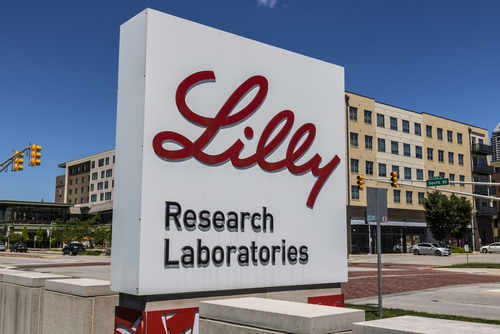
A neutralizing antibody developed by Eli Lilly and Company — bamlanivimab –for use on COVID-19 earned emergency use authorization from the United States Food and Drug Administration (FDA) this week, specifically for treating mild to moderate cases.
Now, the drug can be utilized on those 12 years of age and older, with high risks of progressing to severe cases of COVID-19 or hospitalization. The therapy’s safety and efficacy have yet to be fully evaluated, and it has not been shown to be effective in treating already hospitalized patients. In fact, the FDA warned that such treatments could actually worsen the conditions of those patients.
“The BLAZE-1 data show bamlanivimab, when given early in the disease course, may help patients clear the virus and reduce COVID-related hospitalizations, supporting our belief that neutralizing antibodies can be an important therapeutic option for patients fighting this virus,” said Dr. Daniel Skovronsky, Lilly’s chief scientific officer and president of Lilly Research Laboratories. “We’re proud of the speed with which we have been able to bring patients this therapy specifically designed to treat COVID-19.
Scientists warn that bamlanivimab should be administered as soon as possible, specifically within 10 days of symptom onset. The drug is dispensed as a single intravenous infusion. In the randomized, double-blind, phase two BLAZE-1 trial that earned the emergency use authorization, bamlanivimab was shown to reduce rates of hospitalization or emergency room visits for COVID-19 patients within 28 days after treatment.
As a result, Lilly will begin shipping bamlanivimab to national distributor AmerisourceBergen, on which the U.S. government is relying to allocate 300,000 doses to high-risk patients. It will be usable by health care providers.
“As illustrated by today’s action, the FDA remains committed to expediting the development and availability of potential COVID-19 treatments and providing sick patients timely access to new therapies where appropriate, while at the same time supporting research to further evaluate whether they are safe and effective,” Dr. Stephen Hahn, FDA Commissioner, said.
Lilly expects to manufacture up to one million doses of bamlanivimab by the end of the year. While the company eagerly expects global dispersal, the treatment is not without side effects. Noted reactions can include: anaphylaxis and infusion-related reactions, nausea, diarrhea, dizziness, headache, itching, and vomiting.




